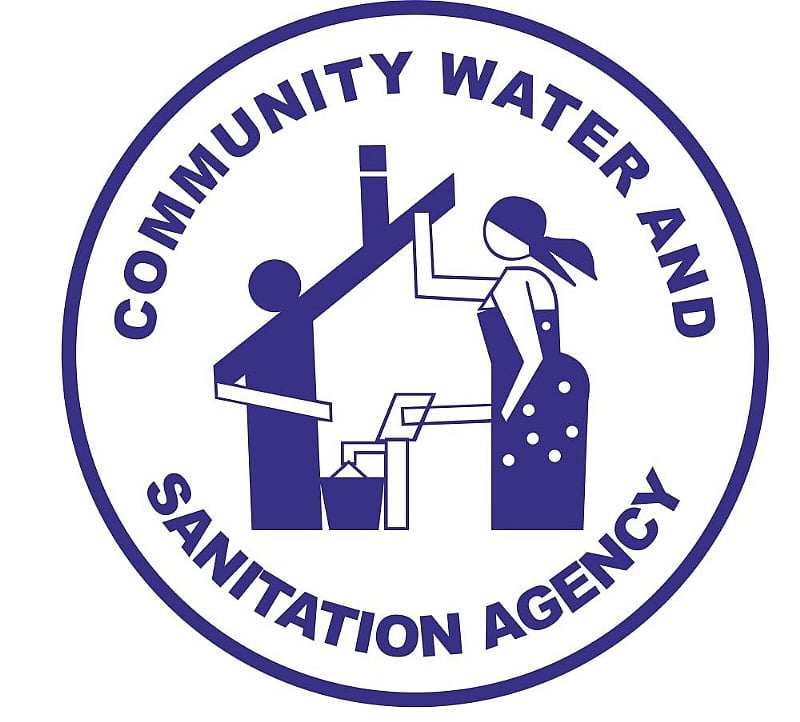
[ad_1]
CONTEXT
The Community Water and Sanitation Agency (CWSA) launched policy reforms in the rural water and sanitation sub-sector in 2017, with the aim of shifting the management of water supply services from existing community management to a professionalized management model.
The policy change was triggered by recommendations gathered from various stakeholder engagements and research findings available in the sector which underscored that the community management model has not been effective enough to ensure sustainable management of the water supply infrastructure that the government and its development partners have made huge investments to provide. Initial commitments based on a concept paper led to the development of a Framework for Reform which was also presented to sector stakeholders for validation at national and regional levels.
THE REFORM PROCESS TO DATE
As part of this process, a Cabinet Memo was then submitted to Cabinet by CWSA through the Ministry of Sanitation and Water Resources (MSWR) for consideration for approval for amendment of the law. of 1998 on the Community Water and Sanitation Agency (Law 564).
The purpose of the required amendment is to transform the Community Water and Sanitation Agency (CWSA) into a public service organization, with an emphasis on the application of innovation and professional skills in the management of water systems to achieve sustainability.
In November 2019, Cabinet approved CWSA policy reforms. This paved the way for the next step in the reform process which involved the development of a new Community Water Services Policy (CWSP) on the basis of which the amendment to Law 564 will be made to transform the CWSA from facilitation agency into a new public service. organization called the Community Water Services Authority (CWSA). This amendment will allow CWSA to directly manage the more than 1,022 small town water distribution networks scattered across the country.
THE NEW COMMUNITY WATER SERVICES POLICY (CWSP)
The new community water services policy has been aligned with the government’s vision for the sub-sector as enshrined in the Water Sector Strategic Development Plan (WSSDP), expressed as follows: “All people living in Ghana have access to adequate, safe, affordable, reliable and sustainable water services, and practice safe sanitation and hygiene.”
The formulation of the CWSP is based on discussions held in multi-level workshops and extensive consultations with key stakeholders at national, regional, district, sub-district and community levels in the sub-sector. community water services.
The aim of the CWSP is to provide policy measures and define the implementation modalities necessary to support the achievement of the government’s vision for the sector, as stated above. The policy also provides guidance and advice for the provision of water services and helps decision-makers and stakeholders to determine “how things are done” and “who does what”. Most importantly, the amendment to the current CWSA law, Law 564, will be based on the CWSP.
GOAL AND OBJECTIVES
the goal of the sector is’improve access to safe water, sanitation and hygiene as a means of improving people’s standard of living ”.
the Goals are:
- Achieve universal coverage of water and sanitation services by 2025.
- Ensure the sustainable financing of investments, operations and maintenance of water services.
- Ensure that water sector institutions have the expertise, information, equipment, logistics and funding to perform their role effectively and efficiently, transparently and well coordinated.
- Ensure the sustainable exploitation, use and management of water resources
GUIDING PRINCIPLES OF THE NEW COMMUNITY WATER SERVICES POLICY
The new policy for community water services will be guided by eleven principles. These are:
FOCAL ZONES AND STARTEGIC ACTION
Nine areas of intervention and strategic actions have been identified under the CWSP. These included; Access to safe drinking water, sanitation and hygiene, finance, public-private partnerships (PPP), knowledge management, research and innovation, pro-poor support , climate variability and change, sustainability of water services and water security.
FEATURES OF THE NEW CWSA ACCORDING TO THE CWSP
Basically, the new Community Water Services Authority (CWSA), when established, will be the primary public service organization in the rural water and sanitation sub-sector. It will provide and manage drinking water supply and related sanitation services to rural communities and small towns and coordinate all actors and interventions in the sub-sector, including NGOs and water service providers in the private sector.
Its specific functions will include the following:
- Be the owner of the assets and manage all community water systems with public funds
- Establish standards and guidelines for water supply in rural communities and small towns
- Authorize private sector entities for community commercial water supply
- Mobilize funding from public and private sources for the provision of community water services and related sanitation programs in rural communities and small towns.
- Encourage private sector participation in drinking water supply and related sanitation
- Promote PPP agreements for the financing, construction and management of water systems
- Coordinate data collection and dissemination efforts for planning and policy decisions.
- Create an enabling environment for knowledge management and learning in the sub-sector
- Provide support, in collaboration with MMDAs and NGOs, to local private entities such as Area Mechanics, in the management of hand pumps and associated sanitation services.
- Store and distribute spare parts for hand pumps for point water systems
CONCLUSION
CWSA policy reform is underway and although there are challenges, we hope that the amendment to Law 564 will be passed before the end of 2021 to strengthen the Agency to grow. . To ensure adequate understanding of the new policy and this stage of the reform process by Agency staff and industry stakeholders, CWSA Director General, Eng. Worlanyo K. Siabi, together with a team from head office, initiated regional commitments on the policy. The first engagement was launched in the Volta region and carried out in the Eastern and Central regions from February 22 to 26, 2021.
Source link